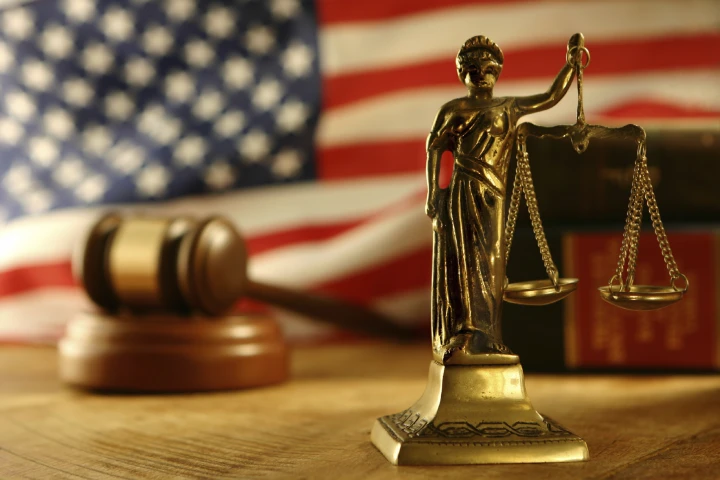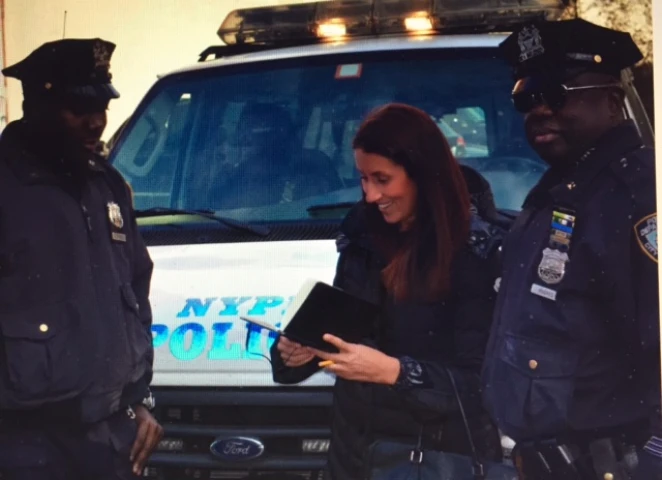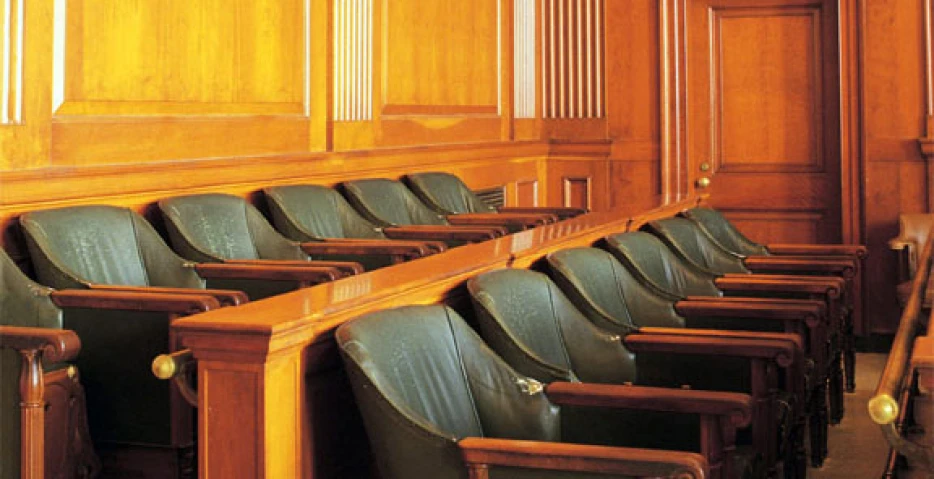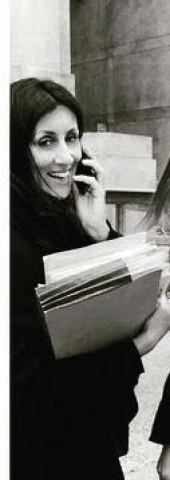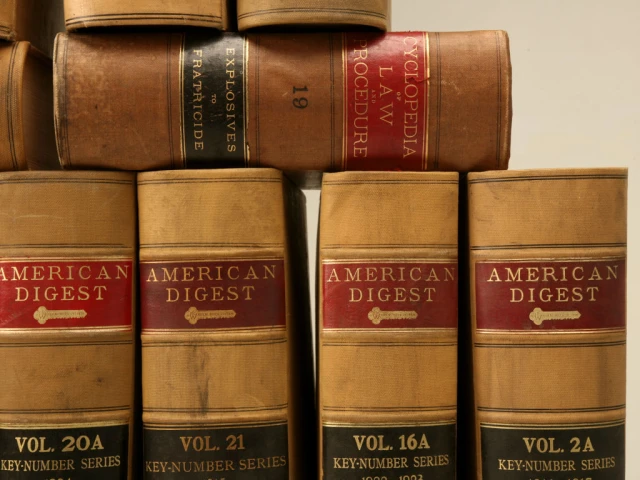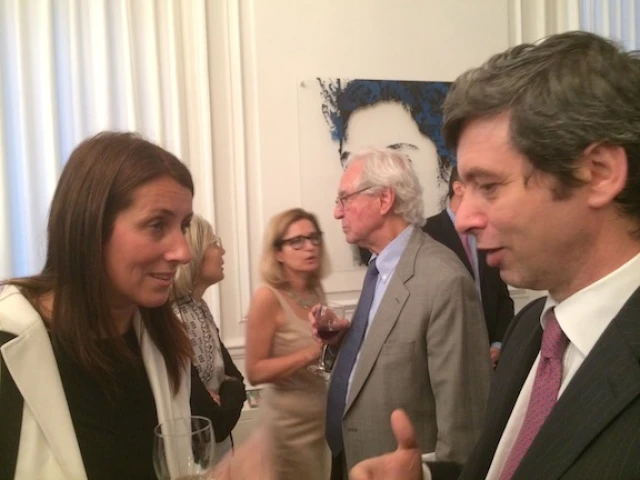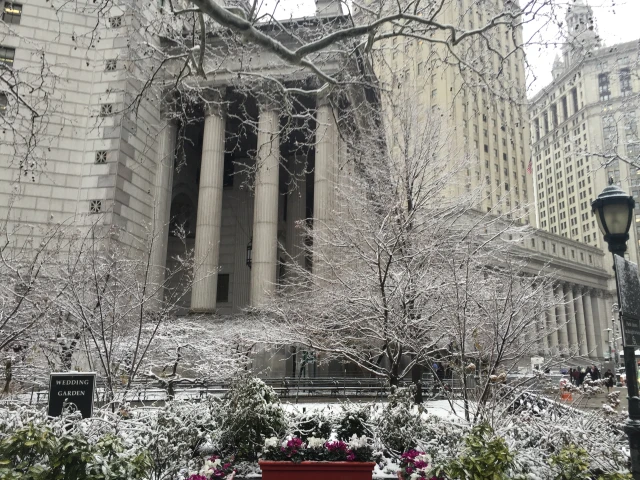Movies and TV series on trials and legal issues have long helped Italians learn about the criminal justice system in the United States.
New York has a brilliant Italian criminal defense lawyer. She is a young woman from Bari who helps Italian and American citizens who are struggling with the intricacies of American law. Her name is Germana Giordano and we thank her for her time as well as the support she gives our fellow countrymen.
Germana, was it easy for you to leave Bari and establish yourself as a criminal defense lawyer in New York?
I left Bari in January 1998. Leaving my city was not as hard as leaving my family. It is always hard to say goodbye to my parents at the airport. My parents are amazing. They never saw my decisions as a detachment from something, but rather as a dream coming true.
To me, New York is home. I have a husband and amazing friends that make me feel at home even across the ocean. Since I arrived in the Big Apple, I have constantly shared my experiences with my parents, my sister, and – for the last six months – my nephew Giorgio.
Becoming a criminal defense lawyer has been really tough and fascinating at the same time. On one hand, it was tough because my professional life as a "foreigner" depended on work visas. I didn't have many choices. I was already lucky to be sponsored by American law firms. On the other hand, it was fascinating. After meeting my husband and obtaining first the green card, and then the citizenship through our marriage, I realized that the American Dream was possible.
As a recently married woman, I followed my heart fully supported by my husband and family. I left my well-paid, stable job to follow my American dream of becoming a criminal defense lawyer in New York. My current colleague, criminal defense attorney, Don Savatta, offered me the opportunity to collaborate with him on criminal cases. He hosted me at his firm located at 250 Park Avenue – my current office. He mentored me. I will be always grateful to him.
I subsequently gained a lot of experience working for a not-for-profit organization in Harlem, where I represented indigent clients. At some point of my career, the Italian Consulate General in New York noticed me. After many successful collaborations with the former Deputy Consul Lucia Pasqualini and her brilliant projects, I quickly became – quoting the Editor in Chief of La Stampa – "The Attorney Who Saves Italians in New York!"
Italians are well-esteemed in the US. As a young Italian professional in the US, have you been appreciated for your work?
Yes I have, both for my preparation and professionalism. I believe I owe my success as a criminal defense lawyer to my studies in Italy. The "classical" approach given by the Italian universities allowed me to practice law in a different system, in a different language, with a strong problem-solving approach.
My American University experience offered to me a more specific and tailored training that has undoubtedly enriched me. Yet, I have always kept a "Made in Italy" forma mentis. While, within a specific field, Americans are better prepared, when it comes to unexpected events, if they have not received a specific training, their performance will not be up to the challenge. Coming from a country where exceptions are often the rule, to know how to promptly and properly solve the unexpected is certainly a plus.
What are the main differences between the American and the Italian Criminal Law systems?
There are huge differences between the two, but I think that the main ones concern both the pre-trial and the trial phases. During pre-trial, the two systems present different approaches to plea bargains. In Italy, you can only negotiate a reduction of the sentence. To the contrary, in the US, you can also negotiate the crime, by reducing it to a lesser-included offense. During the trial phase, instead, the main difference is the existence of the popular jury – since the first level. The jury acts as the trier of facts.
The concept of a popular jury has always fascinated me. As a recent graduate who just defended a dissertation on Comparative Criminal Procedure (written both in Italian and English) and after spending an entire summer at the Law Library of UCLA in California, I was not able to understand how a jury made of ordinary people could act as a Court. That seemed odd and dangerous to me, but today I know the answer.
The jury, which is professionally selected by the parties during the "voir dire," is only the trier of facts; it evaluates the evidence by following verbatim the Court's instructions. The Courts makes decisions regarding the applicability of the law. The final verdict can only be achieved unanimously. The popular jury makes the American trial fairer. Being judged by a team of jurors chosen among ordinary people balances out the relationship between the District Attorney's Office and the Court. This balance does not usually occur in within Italian Courts.
Is there anything in American Criminal Law that you think should be implemented in the Italian one or vice-versa?
My suggestion is to reciprocally implement some of the differences between the two systems as the one described above. Italy should certainly follow the American approach to prosecute first time offenders. In my experience, the Italian criminal system is too strict when it comes to prosecute people who experience the criminal system for the first time. Even if we do allow, in specific circumstances, the cancellation of a crime – through criminal rehabilitation, I still believe the Italian Criminal Law system is too strict when it comes to offenses committed by first time offenders.
On the other hand, I believe the American system should adopt our "hearts, our reasonableness, flexibility and common sense." Despite the fact that the American system has a more pragmatically driven structure, it still remains a very rigid system– at times – illogical, as it often lacks a human approach. Our system is more "Constitutionally sound" than the American one.
What are the situations you most often find yourself addressing?
The criminal offenses committed out of superficiality! Dealing with many Italians visiting New York, I often see people being arrested for silly things. Italians often violate park rules parks; they climb fences and chains, simply to take pictures where the access is denied or limited. Sometimes they steal in shops – often they steal at Century 21. Sometimes they jump turnstiles in the subway, without paying the ticket. Once I defended a person who stole French cheese at Wholefood Market!
I also represented Italians fighting in public with their wives, children, in bars or in the street. When dealing with physical fights, the criminal charges become more serious; as a consequence, the cases become more complicated. At times, the courts, during the pendency of a matter, confiscate passports when arraigning defendants prior to release them with or without bail.
At times, I handle much more serious cases involving organized crime, children abduction, international arms- and drug-trafficking, etc. In this type of cases, the Consulate intervenes by assisting the arrested compatriot and his/her family. The effective intervention of the Consulate significantly increases the chances of success in the resolution of a case. I happened to defend Italians in the US arrested at the airport because found in possession of kilos of cocaine and other drugs stashed in their luggage, in football balls, cans and the like.
Without undermining your clients' privacy, tell us about a bizarre case you had to work on?
A couple of years ago, I represented a young boy visiting New York while on vacation who found a credit card on the street. He was confused and did not know what to do with it. He decided to try it and bought chewing gums. When he realized the card actually worked, he promptly brought it to a police station to report he had used it to test if it worked. The moment he returned it to the station, he was immediately arrested for criminal possession of stolen property. That poor guy was frightened and astonished.
This is a classic example that shows the huge differences between the two systems. In Italy, a wrong yet in-good-faith action – such as the one mentioned above – would have never ended up with an arrest. However, the analysis is deeper than what I just explained. Living in an international metropolis, arresting citizens for "minor" offenses is a necessity to maintain the public order. If there were just fines as sanctions to punish silly offenses – like for the non-payment of the subway tickets – life would turn into a nightmare, and we would live in chaos.
What would you suggest young Italians wanting to become criminal defense lawyers in the US?
Let me quote my historical English professor here: "Where there is a will, there is a way." Pursuing a career as a criminal defense lawyer is difficult for an Italian living in the US. Crazy as it may sound, I believe I am still the only criminal defense lawyer practicing in New York who graduated in Italy and specialized in the US. It is an unusual career as it is hard to pursue, from a practical point of view. However, there is always a way to make a dream come true. The US allows you to do that. It is a merit-based country that offers many opportunities.
What do you see in your professional future? Do you see yourself becoming a judge?
Becoming a judge does not really interest me, but if it did, I would manage to make that dream come true as well. One of my university colleagues from Dominican Republic has just become one. Now we regularly see each other at Manhattan Supreme Court, where she presides. Dreams come true in the US. My dream is to keep making a difference with my job.
Is an improvement in the legal cooperation between Italy and the US possible? How so?
I think there is already a lot of collaboration. For example, I represented someone involved in a case named the New Bridge. New Bridge is a good example of a case prompted from the cooperation between the FBI and the Italian authorities. It was a prominent case involving 'ndrangheta. In that occasion, I observed how significant the collaboration already However, I still believe, there is always room for improvement.
Anni di film e serie tv su processi e ambientazioni legal tra avvocati e giudici hanno fatto in modo che siano molti gli italiani che conoscono un minimo gli elementi del sistema giudiziario penale americano.
Ma a New York c’è una brillante penalista italiana: una giovane ragazza di origini baresi, che aiuta gli italiani (e non solo) che nel corso del loro soggiorno americano incappano in qualche modo nelle maglie della severa giustizia americana. Il suo nome è Germana Giordano, e la ringraziamo per l’aiuto che dà ai nostri connazionali e per la sua disponibilità ad essere intervistata.
Germana, è stato semplice lasciare la tua Bari e affermarsi come avvocato penalista a New York?
Sono andata via da Bari a gennaio del 1998. Lasciare la mia città non è stato molto difficile, lasciar la mia famiglia è stata dura, non ti nascondo che nonostante siano passati quasi 20 anni è sempre difficile salutare i miei genitori all’aeroporto. I miei genitori sono eccezionali, non mi hanno mai fatto vivere la mia scelta come un distacco. Mi hanno sempre incoraggiato a seguire e realizzare i miei sogni.
Per me New York ormai è casa, ho un marito e degli amici meravigliosi che mi hanno restituito la sensazione di avere una famiglia anche oltre oceano. Da quando sono arrivata a NY, condivido giornalmente la mia esperienza nella grande mela con i miei genitori, mia sorella e da 6 mesi anche con mio nipote Giorgio.
Diventare un avvocato penalista è stato duro ma affascinante allo stesso tempo. E’ stato duro perché essendo “straniera” vivevo una vita professionale sempre legata a visti di lavoro. Non avevo inizialmente troppe possibilità di scelta, ero già fortunata ad essere sponzorizzata da law firms Americane. E’ stato affascinante perché dopo aver incontrato mio marito ed aver ottenuto attraverso il nostro matrimonio inizialmente la carta verde e successivamente la cittadinanza, ho capito che l’American Dream è ancora una realtà!
Fresca di nozze e sempre con l’appoggio di mio marito e della mia famiglia ho seguito il cuore, abbandonato lavori stabili e ben pagati per inseguire il mio sogno americano… diventare un avvocato penalista a NY. Il mio attuale collega, anche lui avvocato penalista molto affermato ed ex PM, Don Savatta, mi ha dato la possibilità di affiancarmi alla sua pratica penale non solo ospitandomi a “250 Park Avenue”, il mio attuale studio, ma soprattutto mostrandomi il cammino. Gli sarò per sempre grata.
Mi son fatta le ossa rappresentando per anni clienti indigenti presso un’organizzazione Not for Profit di Harlem. Poi un giorno il Consolato Generale Italiano a New York si è accorto di me. Dopo tantissime collaborazioni di successo cominciate con il Console Aggiunto Lucia Pasqualini e le sue brillanti iniziative, sono improvvisamente diventata a detta di Maurizio Molinari, l’attuale direttore della Stampa, “L’Avvocato che salva gli Italiani a New York!”
A proposito del fatto di essere una giovane professionista italiana in America: noi italiani siamo particolarmente apprezzati negli USA per la nostra competenza. E’ capitato anche a te, nel tuo campo?
Certo! Sia a livello di preparazione che di professionalità. Penso di aver fatto fortuna come avvocato penalista perché ho studiato prevalentemente in Italia! Perché la classica preparazione delle nostre università mi ha dato la possibilità e l’abilità di riuscire a paragonarmi ad un sistema diverso, ad una lingua diversa, con un approccio di risoluzione di un problema a 360 gradi.
L’università Americana è più specifica e specializzata, il background universitario Americano mi ha sicuramente arricchito, ma resta il fatto che la mia forma mentis giuridica è comunque un puro “made in Italy”. Sicuramente all’interno della loro materia gli americani hanno una preparazione eccezionale, ma non sono meno abituati all’imprevisto. Venendo da un paese in cui l’imprevisto è quasi una norma, l’abilità di risolvere prontamente qualcosa di inaspettato è un grande vantaggio.
Quali sono le principali differenze tra il sistema penale americano e quello italiano?
Le differenze tra i due sistemi penali sono abissali, ma penso che due siano le differenze fondamentali: una a livello pre-processuale e l’altra a livello processuale. Nella fase pre-processuale la differenza più importante tra i due sistemi consiste nella possibilità di poter patteggiare, non solo la pena ma anche il reato. In Italia si può solo patteggiare uno sconto della pena. A livello processuale, invece, la differenza più importante è l’esistenza della giuria popolare (sin dal primo livello) come “trier of facts”.
Il concetto di giuria popolare continua ad affascinarmi. Neo-laureata e dopo aver discusso una tesi sperimentale in procedura penale comparata scritta sia in italiano che in inglese, e dopo aver trascorso un’estate nella Law Library della UCLA in California, non capivo assolutamente come un imputato potesse essere giudicato da una giuria fatta di gente comune. Mi sembrava inverosimile e rischioso. Oggi conosco la risposta.
La giuria selezionata professionalmente dalle parti, attraverso la fase di “voir dire”, valuta solo le prove indiziarie e testimoniali seguendo letteralmente le istruzioni del giudice. Il verdetto viene e può essere solo raggiunto all’unanimità. La giuria popolare rende il sistema processuale Americano più giusto. Il rischio di essere giudicati da un pool di giurati scelti fra gente comune riequilibra il rapporto tra il PM e la magistratura, cosa che purtroppo non accade nel sistema processuale italiano.
C’è qualcosa del sistema di giustizia penale americano che ritieni dovrebbe essere adottata anche in Italia? E viceversa?
Consiglierei al sistema italiano di adottare entrambe le differenze che ho sopra descritto. L’Italia poi dovrebbe rifarsi al sistema Americano per quanto riguarda i first time offenders. Secondo me il sistema penale italiano è troppo severo con chi infrange la legge per la prima volta. È vero che noi prevediamo per alcuni casi la cancellazione del reato, attraverso l a riabilitazione della pena, ritengo tuttavia che il sistema Italiano sia troppo severo nel caso in cui si tratti della prima offesa di un convenuto.
Invece, al sistema americano consiglierei di adottare dal sistema italiano il nostro cuore, la nostra la ragionevolezza ed elasticità: per dirla all’americana, il nostro “common sense”. Nonostante il fatto che il sistema Americano sia per impostazione più pragmatico, in realtà ci si scontra ogni giorno con un sistema rigido e a volte illogico in quanto manca qualsiasi componente umana: senz’altro manca la nostra ragionevolezza ed elasticità. Il nostro sistema è un po’ più garantista rispetto al diritto Americano di per sé stesso.
Quali sono le situazioni che più spesso ti capita di affrontare?
I reati commessi per superficialità! Difendendo tanti italiani in vacanza a New York, mi trovo spesso in situazioni in cui gli stessi vengono arrestati per bravate o stupidaggini. Spesso infrangono le regole dei parchi, saltano cancelli, scavalcano catene semplicemente per fare fotografie in zone in cui è limitato o vietato l’accesso. Oppure rubano nei negozi, ad esempio a Century 21. A volte si infilano nella metropolitana senza pagare. Una volta ho difeso addirittura una persona che ha rubato formaggi francesi da Whole Food Market!
Ho anche difeso italiani che litigano in pubblico, con mogli, bambini, nei bar, per strada. Se si ricorre “alle mani” i capi di imputazione diventano più seri. A quel punto i casi si complicano, il passaporto viene spesso ritirato dai magistrati su richiesta di rilascio senza cauzione al momento della convalida dell’arresto, l’arraignment.
Poi mi capitano casi più seri, di criminalità organizzata, di sottrazioni di minori, di traffico di armi e di stupefacenti internazionali. In questi casi interviene sempre il Consolato che assiste da vicino il connazionale arrestato dando supporto sia all’individuo che alle famiglie. L’intervento efficace del Consolato, aumenta notevolmente le possibilità di successo per la risoluzione dei casi. Mi è anche capitato di difendere connazionali “di passaggio” negli Stati Uniti, bloccati in vari aeroporti perché in possesso di chili di cocaina o altre droghe nascoste tra bagagli, palle da football, lattine o altro.
Senza intaccare la privacy dei tuoi clienti, esiste un caso particolarmente curioso su cui hai lavorato che possa essere raccontato in forma di aneddoto?
Qualche anno fa ho rappresentato un ragazzo che era in vacanza a NY e ha trovato per terra una carta di credito. Siccome era un po’ spaesato e non sapeva che fare, per capire se la carta fosse valida o meno, l’ha provata comprando un pacco di gomme. Nel momento in cui ha capito che la carta era valida l’ha portata in un distretto di polizia, spiegando che l’aveva provato a usarla per capire se fosse valida. Nel momento stesso in cui l’ha portata al distretto l’hanno arrestato per criminal possession of stolen property. Il povero ragazzo era basito e terrorizzato.
Questo è un classico esempio che mostra una grande differenza fra i due sistemi. Un’azione sbagliata ma fatta in buona fede, come quella su descritta, non sarebbe mai risultata in un arresto in Italia.
Poi però ci sono altre riflessioni. Considerando anche il fatto di abitare in una metropoli internazionale, capisco anche che arrestare dei cittadini per i reati che io definisco di superficialità è una necessità per mantenere l’ordine pubblico. Se ci fosse solo un’ammenda per un reato stupido, come per esempio, il non pagare il biglietto per la metropolitana, la vita sarebbe un incubo, si vivrebbe nel caos più totale.
Che consiglio ti sentiresti di dare ad un giovane italiano che voglia inseguire il sogno di fare l’avvocato penalista in America?
Ti rispondo come mi diceva sempre il mio storico professore di inglese: “Where there is a will, there is a way…” La carriera di penalista in America per un Italiano è molto difficile, che tu ci creda o no sono ad oggi a NY forse ancora l’unica penalista laureata in Italia e specializzata in America. E’ una carriera completamente anomala perché difficile da realizzare da un punto di vista strettamente pratico. Tuttavia c’è sempre un modo per realizzare un sogno. L’America lo permette: questo è un Paese molto meritorio, che ti dà delle opportunità.
Cosa c’è nel tuo futuro professionale? Una carriera da giudice?
Non mi interessa diventare un giudice, ma se quello fosse il mio sogno potrebbe essere realizzato. Una delle mie compagne di università di origine Dominicane lo è appena diventato. Adesso ci incontriamo spessissimo nelle aule della Supreme Court di Manhattan, dove lei presiede. In America il sogno è realizzabile.
Il mio sogno è di continuare a fare una differenza con il mio lavoro.
C’è spazio per un miglioramento nella cooperazione giuridica tra Italia e Stati Uniti, e se si, in quale concreta fattispecie?
Io penso che ci sia già tanta collaborazione. Per esempio, io mio studio ha seguito due anni fa il caso New Bridge, che è sorto dalla collaborazione tra l’FBI e la magistratura italiana: un caso di criminalità organizzata, di ‘ndrangheta. In quell’occasione ho avuto modo di costatare come ci sia grande collaborazione tra Italia e gli Stati Uniti. Spazio c’è sempre per tutto.



